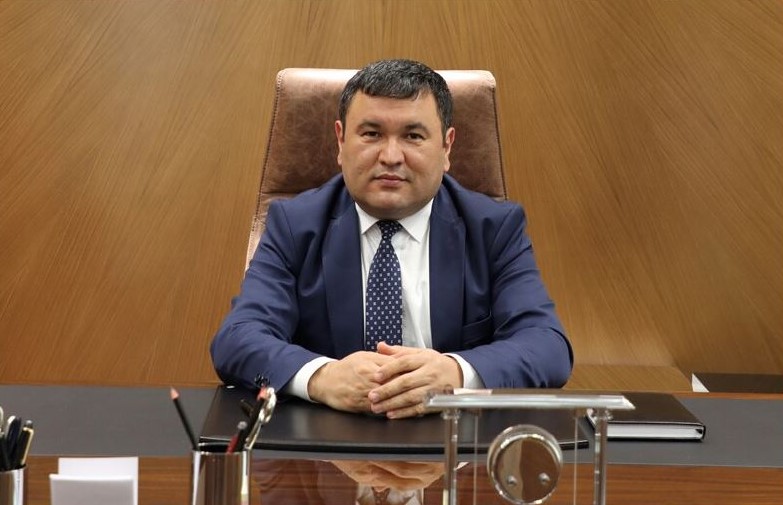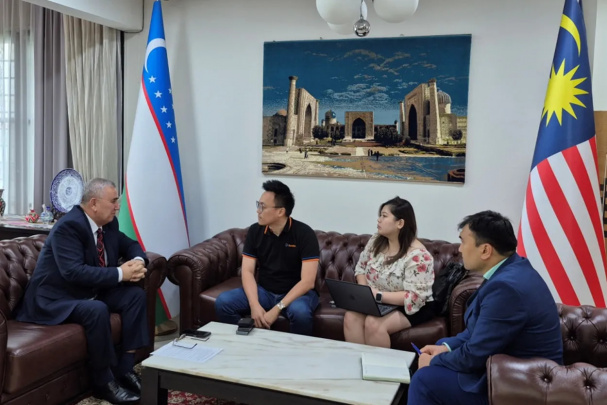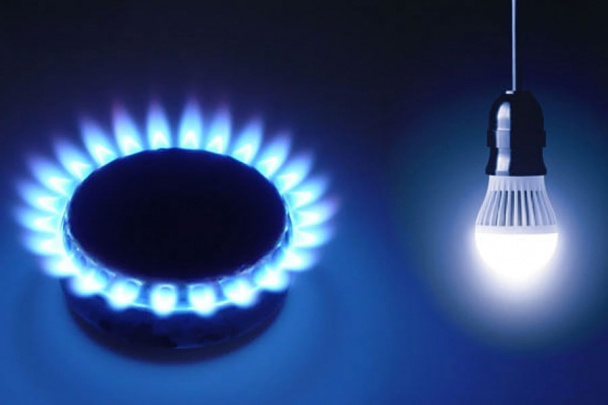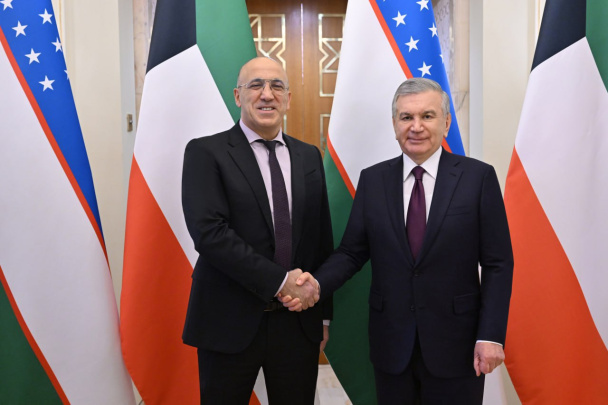Energy Minister of Uzbekistan speaks about nuclear power plant, green energy and gas cooperation with China
The energy sector of Uzbekistan is undergoing a period of significant transformation. In an interview with Energy Intelligence in Tashkent, the Energy Minister of Uzbekistan Jurabek Mirzamakhmudov outlined the prospects and challenges that the sector is facing today.

Photo: Energy Ministry
What challenges does the energy sector of Uzbekistan face today? What are the priorities?
Today, the development of our energy industry goes in different directions. First, we pay great attention to the development of renewable energy sources. The president has set ambitious goals and objectives in this direction. Along with new energy sources, increasing energy efficiency is of great importance to us — reducing energy consumption by both industries and the population. Today, the consumption of energy resources per capita in the country is still high, so we see great potential in this direction. As part of the energy efficiency program, we plan to decommission obsolete and inefficient power units and completely modernize electricity generation through the construction and commissioning of new generating capacities. We will also modernize coal-fired stations by building new units, as there will remain a certain share of coal-fired generation in the country. Another vector of development is the modernization and development of electricity networks: this is energy transmission, storage systems and control systems. An important area is the digitalization and automation of the industry — from the production of hydrocarbons to their processing, transportation and delivery to the end-consumers.
Also, one of the main directions for the development of the industry is building mutually beneficial cooperation with our neighbors. We have already set up a joint venture with Tajikistan to build two hydropower plants, signed a road map with Kyrgyzstan and Kazakhstan to build a hydropower plant in Kyrgyzstan, and there are projects to connect Tajikistan to our unified Central Asian energy system. All these priorities will determine the development of the energy industry in the coming years.
Let's talk about cooperation. You have just returned from China, where you took part in the state visit by the President of the Republic of Uzbekistan Shavkat Mirziyoyev, and a number of business events. What joint projects and cooperation in what areas did you discuss with Chinese companies?
First of all, it is necessary to note the great positive experience of China in the energy sector. We are extremely interested in this experience and we are ready to expand our cooperation with China in this area. Previously, Chinese companies participated in projects in Uzbekistan mainly as contractors or subcontractors, many were more interested in the resource sector. However, now we have reached agreements with leading Chinese companies on the joint implementation of projects on the principles of public-private partnership (that is, entirely at the expense of their investments) for the construction of solar and wind power plants. Some of the projects, which we plan to receive first capacities by the end of the year, were launched in the presence of the president. In total, we have agreed to create more than 6 gigawatts of new renewable energy sources and new transmission lines and substations worth more than $6 billion. A large number of Chinese companies have expressed interest in these projects. These are such companies as Energy China, China Poly Group Corp. together with China Power Investment Corporation; Universal Energy for wind generation; and China National Chemical Engineering & Construction Corporation Seven (CC7) plans to develop not only renewable energy sources in Uzbekistan, but also petrochemical projects. With leading manufacturing companies such as Tongwei Group, Sungrow, Jinko Solar and Huawei, we discussed the possibilities of localization. At the initial stages, we are talking about the centralized supply of equipment from China, but in the future, we are considering localization of production in Uzbekistan. Chinese companies are also ready to cooperate with Uzbekistan on the construction of battery energy storage systems.
Chinese companies have agreed to supply such systems. We have also reached an agreement with Chinese companies such as State Grid Corporation of China, Xian Electric, TBEA on the construction of high-voltage power lines and substations, taking into account the commissioning of new generating capacities. The estimated cost of such projects is more than $1 billion.
Did you discuss gas supplies to China?
We have contracts and work is proceeding according to those contracts as planned.
Uzbekistan and Russia have signed a road map on Russian gas supplies. When can a commercial contract be signed and is everything ready for gas supplies from Russia through Kazakhstan to Uzbekistan?
We are working within the framework of the road map, studying transit opportunities, and solving technical issues. As soon as technical issues are tackled, we will discuss commercial terms.
Have Uzbekistan's goals on the green agenda changed, taking into account the introduction of new capacities for renewable sources?
Our goals have changed slightly, only in terms of speeding up processes. First, by the end of the year, some 2 GW of new renewable energy capacities should be commissioned. Secondly, if our task was to bring the share of renewable energy in the energy balance to 25% by 2030, now, according to our calculations, we will be able to achieve this indicator by 2026. We are talking about 15 GW of new renewable energy capacities, of which 2 GW will be commissioned this year. We also have new directions. Thus, we started working on green hydrogen too. On the sidelines of the Energy Forum, Uzkimyosanoat JSC and Acwa Power signed an agreement on a pilot project for the construction of green hydrogen generation in Uzbekistan. We have not changed our carbon-neutrality goals. We plan to reach it in 2050.
How are your plans for the development of nuclear energy going? Why is there still no progress on the construction of the first nuclear power plant jointly with Rosatom?
I would not say that there is no progress on the issue. Work continues under the framework of an intergovernmental agreement on cooperation in the field of nuclear energy between Russia and Uzbekistan. Perhaps the work is progressing a little slower than we expected because we are looking at all aspects, reconciling and checking every detail, eliminating possible risks. In parallel, we are now looking at the latest achievements in the field of small modular reactors, which are becoming very popular. The construction of a nuclear power plant is a very serious obligation for the state, both financially and from other points of view. Therefore, we are now primarily focusing on the accelerated development of renewable energy sources in order to eliminate the existing energy shortage. However, we do not remove the issue of nuclear power plant construction from the agenda — we are studying technologies, training personnel, and negotiating with partners. We need to eliminate any risks.
Uzbekistan pays great attention to the development of the chemical industry. What are your plans for the development of this sector?
We see great prospects in terms of the development of the petrochemical industry and plan to focus on the production of high-value-added products. We have already invested in gas monetization through the development of gas chemical complexes throughout the country. We plan to continue processing our gas to create value-added products, such as new types of polymers, and produce mineral fertilizers and synthetic fibers for the needs of the textile industry. The president pays special attention to the petrochemical industry and the development of petrochemical clusters. We have already created special technological chemical clusters in Navoi, in Ustyurt, and we are planning another one in Fergana. Separately, together with the Republic of Tatarstan, we created a Technopark in Chirchik.
Uzbekistan has become more open to foreign investors in recent years. Which countries are already actively investing in the energy sector and what potential partners do you see?
You are absolutely right; Uzbekistan is open to new partnerships and investments. We can proudly note that today investors are actively involved in renewable energy projects, technology projects, and the oil-field services sector. The geography of partners is also expanding. We have Middle Eastern partners from Saudi Arabia (Acwa Power), and the United Arab Emirates (Masdar, TAQA). French EDF, TotalEnergies, German Siemens Energy are already investing in Uzbekistan.
Recently, we had negotiations with Mubadala (UAE), which is also studying investments in the country. Separately, I would like to mention companies from China, which, as I said, will invest in the creation of new generating capacities or distribution networks. Turkish companies have already invested in generating capacities and are ready to continue participating in new projects. We are already receiving proposals from them on distribution networks, on a gas transmission system for private operators. One of the largest Egyptian companies, Elsewedy, is ready to invest in both renewable energy sources and production. Companies from India and Qatar are showing interest in our market.
What are you ready to offer foreign investors?
First of all, we offer a dynamic market and a dynamic economy. There is a consumption boom in our country and the potential for market development is huge. In addition, Uzbekistan is becoming an important player in the Central Asian market in terms of transit potential. If you look at the construction projects of the Uzbekistan-Kyrgyzstan-China railway and the Uzbekistan-Afghanistan-Pakistan railway, then there is a potential to enter other markets in the region. In terms of the investment climate, we offer stable legislation, incentives both in small industrial zones and free economic zones, incentives for large projects. And most importantly, the president himself, the guarantor of the constitution and stability, is at the head of all the current reforms and changes. We have something to offer investors and we are ready for new partnerships
Related News

13:02 / 10.03.2025
Malaysia’s Sunview Group to invest in large-scale solar projects in Uzbekistan

11:15 / 04.03.2025
Ministry of Energy authorized to adjust social norms for electricity and gas duration

14:07 / 20.02.2025
President Mirziyoyev calls for immediate action to cut energy waste in all sectors

14:04 / 18.02.2025



